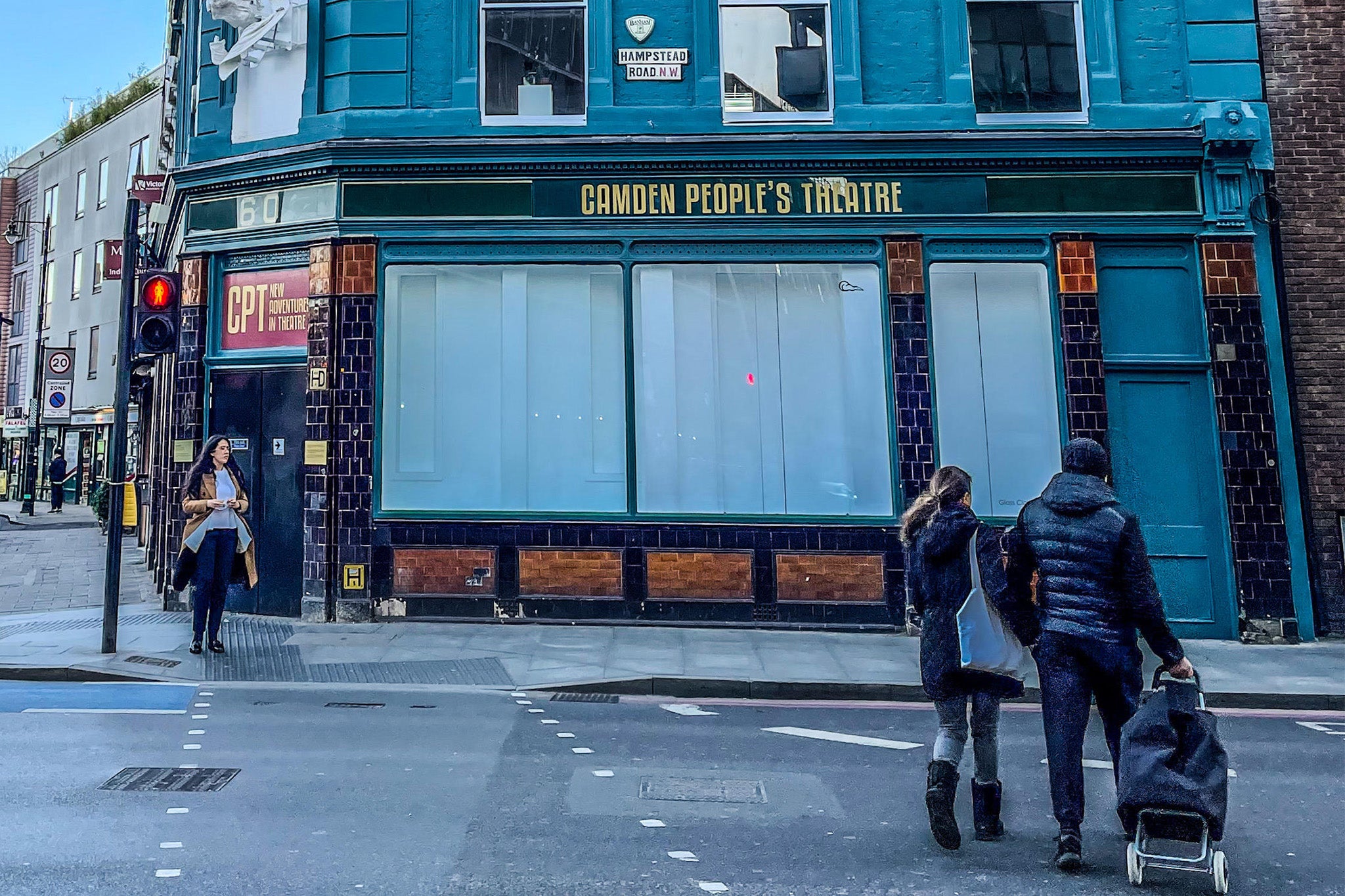Theatre under fire for seeking ‘under class and criminal class’ applicants ‘to review’ job ad wording
One viewer joked about committing crimes to be eligible for the job

A Camden theatre has come under fire for a job ad seeking applicants from the “working-class, benefit class, criminal class and/or underclass” has said they are “reviewing” their wording.
The Camden People’s Theatre made the very specific requirements in its search for a new artistic director and joint CEO.
The job, which pays a handsome £45,000-£50,000 per annum, “warmly welcomes applications” from those who have never held a similar role before.
It reads: “Whoever you are, your priority will be facilitating success for other creatives, particularly those who have been historically less represented in the arts. We warmly welcome applications from practitioners who have not done this job before.
“The Artistic Director is joint CEO with the Executive Director. Together the joint CEOs are responsible for developing and delivering the strategic vision of the organisation and ensuring that CPT remains a financially robust and ambitious organisation.”
The job is a part-time, four-day-a-week role that comes with the added benefit of flexible working, but the successful applicant can expect to spend most of their time working from the theatre itself.
The ad then lays out its requirements for the type of people who can apply in explicit detail.
It states that those without formal education are welcome, as well as those who identify as being “D/deaf and/or disabled, neurodiverse, working-class, benefit class, criminal class and/or underclass, global majority* and/or migrant, [and] LGBTQ+.”
The theatre has now referred The Independent to a statement where they have apologised for the offence this has caused “in some quarters and we are currently reviewing its use.”

The ad stresses: “We are particularly keen to hear from Black and Global Majority people, and candidates who self-identify as disabled.”
It also adds that by “global majority” that “includes people of Black Caribbean, Black African, South Asian, East Asian, South East Asian, Middle Eastern, Arab, Latinx, Jewish, Romany and Irish Traveller heritage.”
The ad was subsequently posted to Twitter (X), where the majority of users criticised the theatre for insulting a host of minority groups with its language.
“I have never seen this expression about socio-economic diversity before,” one user wrote of the reference to a criminal and underclass.
“It’s in an advert for a job. It seems insulting on many levels to many people.”
I have never seen this expression about socio-economic diversity before. It’s in an advert for a job. It seems insulting on many levels to many people. pic.twitter.com/Q2u5fO5eG1
— Anne-Marie Canning (@amcanning) May 20, 2024
Reacting to the ad, another user wrote: “Wow! This whole advert has not been written well at all on so many levels.
“In trying to include everyone, they have managed to offend everyone with the wording. I would have loved to be a fly on the wall to hear how they came to this decision.”
Wow! This whole advert has not been written well at all on so many levels. In trying to include everyone, they have managed to offend everyone with the wording. I would have loved to be a fly on the wall to hear how they came to this decision.
— Keasha Brockett (@keasha_brockett) May 20, 2024
“Would’ve been quicker just to say who they don’t want to apply…” joked a second while a third wrote: “Happy to commit a few minor non violent crimes if [it] allows me to join the ‘criminal class’ and be given a shot?”
Happy to commit a few minor non violent crimes if is allows me to join the ‘criminal class’ and be given a shot?
— riversorare (@riversorare) May 20, 2024
A fourth Twitter user simply said: “The idea that someone could ‘identify as’ disabled is directly harmful as well as being horribly, incredibly offensive.”
The Camden People’s Theatre added in their statement about the issue: “There has recently been some concern raised around wording in our current advertisement for a new Artistic Director/Joint CEO.
“As the name suggests, Camden People’s Theatre takes access and inclusion really seriously. We constantly consult on and modify what we do and how we communicate to make sure we’re welcoming and accessible to as many people as possible - especially those who are excluded from the arts, more so now than ever.
“That’s the spirit in which this terminology was used - and we are not the only organisation to use it.
“We also warmly welcome the interest in arts and social inclusion that the reporting around this issue implies – and we hope to see it sustained. The conversation around access to and representation in the arts, and indeed in the media, is a vital one, and we’re committed to continue learning from and contributing to it.”
Join our commenting forum
Join thought-provoking conversations, follow other Independent readers and see their replies
Comments
Bookmark popover
Removed from bookmarks